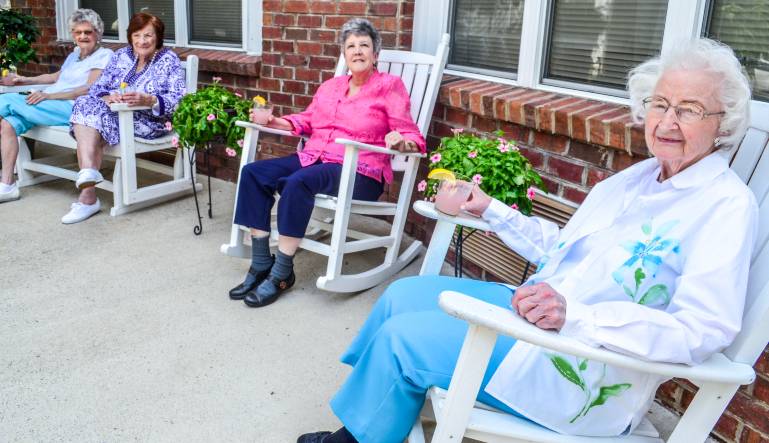When a loved one has Alzheimer’s disease, family members may struggle to find ways to manage difficult behaviors. A common one is agitation. It is difficult on its own, and can also cause other issues to arise, such as wandering. That’s why it’s so important to learn what might be triggering agitation and to take steps to minimize it whenever possible.
Potential Alzheimer’s Agitation Triggers
Here are a few potential causes of agitation you can explore to help your senior loved one:
- Fatigue: Adults with Alzheimer’s commonly go without sleep for long periods of time. They can also have difficulty relaxing during the day. Both can contribute to extreme fatigue which increases the risk for agitation. If this sounds like your loved one’s situation, it might be good to talk with their physician for help overcoming their sleep problems.
- Environment: Alzheimer’s makes it difficult for a person to process too much at one time. When the adult is in a noisy location, such as during a party or at a mall, the noisy, hectic environment can lead to anger and agitation. An environment that is calm is usually better. Playing soothing music may also be beneficial.
- Pain: Verbal communication skills are often impaired early in the disease. This makes it tough for the senior to let you know when they are in pain. Undiagnosed pain is a common trigger for restlessness and agitation. While it might be difficult to do, try to assess your loved one for signs of pain. Do they have a fever? Are they grimacing? Having trouble walking? You may need the intervention of a physician to pinpoint the problem.
- Change: Memory loss can make it difficult for a senior with Alzheimer’s disease to adapt to change. Because short-term memory is typically compromised in the early stages of the disease, a person with Alzheimer’s may not be able to remember new things. A change in one’s daily schedule, caregiver, or environment can increase the risk for agitation. It is usually best to create and stick with a structured daily routine.
- Fear: When memory is impaired, even once familiar faces and places can seem foreign. This can leave a person with Alzheimer’s fearful and uncertain about what is happening to them. Understandably, this confusion can trigger episodes of agitation and wandering. This fear can be a difficult trigger to overcome. Try placing family photos in the home—those from past days are generally best. While it can be frustrating to do, some days might require you to explain who you are over and over.
- Overactivity: Family caregivers have busy days. You may have no other choice than to take your loved one along when you run errands. Be aware, however, that doing too much in one day can increase the risk for agitation. Consider splitting up your stops over several days instead. Alzheimer’s experts recommend planning your outings around your loved ones best and worst times of day. For many, mid-morning is the optimum time of day for activity.
If you test each of these potential triggers without seeing any change in a senior’s agitation, you will likely need to talk with their primary care physician or neurologist for further advice.
Dementia Care at Five Star Senior Living
As part of our commitment to educating older adults and their families about dementia care, we routinely share resources and information on our blog.
If you would like to schedule a tour of one of our award-winning Bridge to Rediscovery programs at a Five Star Senior Living community near you, please contact us. We’ll be happy to make the arrangements!
Contact Us Today
"*" indicates required fields

